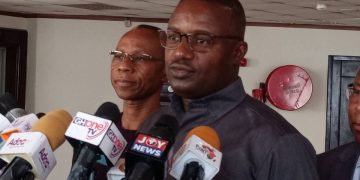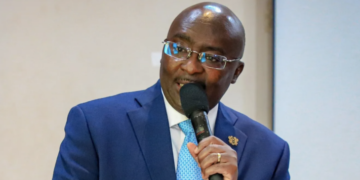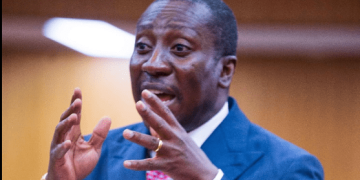Mrs Elsie Addo Awadzi, the Second Deputy Governor, Bank of Ghana (BoG), has called on stakeholders within the business sector to join forces with the BoG to help mitigate the impact of COVID-19 on women businesses.
“The BoG believes in inclusive and resilient financial system and economy because it works for all of us as a nation, and as stakeholders, we should make growth a shared agenda. We need to help develop a more sustainable financial economy by encouraging women to bring their capacities to bear,” she stated.
Mrs Awadzi made the call at a national policy dialogue organised by the Network for Women’s Rights in Ghana (NETRIGHT) in Accra, on the theme: “Gendered COVID-19 Impacts on Women-Owned Micro, Small and Medium-sized Enterprises (MSMEs) and Women’s Financial Inclusion in a Digital Economy.”
The dialogue assessed the challenges women faced in the MSMEs sector such as difficulty in accessing loans, lands, and permits to set up businesses.
Other challenges were faced during the COVID-19 lockdown such as increased household responsibilities for women like childcare, home schooling, caring for the sick and aged parents, slow trading in non-perishable and non-food goods, and gradual erosion of working capital.
These were because a higher percentage of women were in the informal sector and MSMEs, as compared to men, she said, adding that many women businesses had still not ‘resurrected’ from the effect of COVID-19.
The BoG Governor said women worldwide were nine per cent less likely to have an account with a financial institution or mobile banking than men, according to a World Bank report and lagged in accessing financial services such as loans.
Meanwhile, making technology, financial services, and management capacities accessible to them, inured to the benefit of their entire family, society, and nation at large, she noted.
“When women manage businesses, children eat healthy meal, go to school, and get healthcare among others and by extension, benefits the whole nation.”
Mrs Awadzi observed that government’s COVID-19 Alleviation and Revitalization of Enterprises programme introduced to support MSMEs affected by the COVID-19 benefitted more men than women, as it was not gender specific and created gaps in accessing loans.
She advised women in business to leverage opportunities in the digital economy to grow their businesses.
Vice President Dr Mahamudu Bawumia, in a statement read on his behalf, underscored the need to leverage the digital economy for business promotion and growth.
He suggested that NETRIGHT worked with data platform service providers and encouraged its members to procure Ghana cards, register or re-register their SIM cards as the first step towards excelling in the digital economy.
GNA



















































































